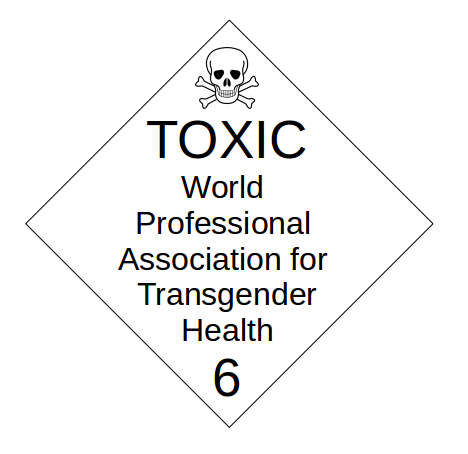I am a Mother to My Stillborn Son, Not a "Birthing Parent"
When gender-neutral language does more harm than good

My first baby - Benjamin James - was stillborn. When I was six months pregnant, I went to the doctor concerned because I wasn’t feeling him kick as much. They discovered his heart rate was low. I was sent to the hospital, but by the time I arrived his heart had stopped altogether. My labor was induced and my little boy arrived the next day. My partner and I got a few hours with our son and then we said goodbye.
While the experience of losing him was devastating and truly indescribable, giving birth to him was one of the most spiritual and empowering experiences of my life. Labor pushed all of the incipient grief away, as my mind and body confronted the task at hand. As the contractions grew more intense, I kept thinking about how I was going to see his face soon. My hospital room was far from the other laboring mothers, for privacy. I walked the halls to speed things up, and I heard someone else’s baby’s first cries. I was suddenly on my knees - not out of grief, but because my body responded to the sound of the newborn with fiercely strong contractions. I felt connected. I thought about how many mothers have had to do what I was doing, and how despite unique circumstances, that each mother, each baby, each birth was threaded with common experiences.
Sands UK is a charity that provides support to families affected by stillbirth and neonatal death. On October 10, 2020 they tweeted (to great outcry): “Often the focus of support and comfort is on the birthing parent, which can leave partners or non-birthing parents feeling isolated and alone. Sands is here for you.”
Remembering to honor the grief of other people who loved the baby is an important message, and “partners or non-birthing parents,” is just an awkwardly phrased way to be inclusive of all sorts of family situations (including lesbians and non-dad male partners).
But “birthing parent.” Birthing parent. Giving birth was one of the only acts of parenting I was ever able to perform for Benjamin. I struggled for some time with whether I could genuinely call myself a mother. This is a common experience with mothers across the loss spectrum, and one that is often tragically unresolved for those who do not go on to have more children. To refer to any mother as a “birthing parent” is condescending, irritating, and reductionist. For a baby loss support organization to refer to a mother whose baby died as a “birthing parent” is unconscionable. While Benjamin’s birth was a bittersweet experience for me, many women in my situation remember their stillbirth as an utter nightmare. And as one commenter pointed out, not all mothers who lose their babies are able to give birth to them.
I was not a birthing parent I was a mother, and when my baby died you helped me so much - I'm heartbroken that you have taken away this most powerful and meaningful word, that belongs to women alone. If this happened to me now, I would not feel able to turn to you.
— Anne James #FBPE 🕸 (@NWtoG) October 24, 2020
To their credit, Sands UK responded swiftly and sincerely to the complaints: “We are so sorry that this tweet has upset some people. Our tweet should have included the word ‘mothers’. It was an error and we apologise from the bottom of our hearts. Sands is here for everyone.”
That could have been the end of this story, but in from stage left comes Freddy McConnell. Freddy gave birth to a healthy baby boy in 2018 and recently lost a court battle to be listed as “father” or “parent” on the birth certificate. The court noted in its judgment that people who give birth are mothers, stating that “there is a material difference between a person’s gender and their status as a parent.” Freddy, whose child is alive and well, proceeded to lecture the grieving mothers about being “bullies” because of their pleas to be called mothers. Others joined in.
While I didn’t like what Sands had written in their initial tweet, what truly broke my heart was reading what all these mothers had written, many of them fresh in their grief. Then when I saw the complete lack of compassion from people who have never lost a child but who nonetheless feel entitled to police the language we use for ourselves, I was furious. I understand that Freddy and the others felt they were sticking up for mothers who identify as trans or non-binary, but they did so in a way that completely invalidated the experiences of the vast majority of us. Why are the feelings of .6 percent of the population more important than the feelings of half the population? Are we less vulnerable? Is our pain less important? Is our attachment to the word “mother” less valid than their detachment from the word? I don’t think so.
These types of incidents have occurred frequently as organizations have increasingly removed the word woman from their public messaging. This is particularly worrisome in the context of women’s health, an area which is already underfunded, under-studied, and under-diagnosed. The scope and harms have been discussed in greater detail elsewhere, but it’s worth touching on briefly since the practice goes beyond impacting women’s emotional and psychological health into their physical health.
For example, “inclusive language” in the context of cervical health dictates the term “people with a cervix” or “individual with a cervix,” to give deference to the feelings of people with gender dysphoria who struggle with reminders of their female anatomy. However, 46 percent of women don’t even know what a cervix is - let alone that they have one - so public health appeals to “people with a cervix” automatically exclude multiple vulnerable groups: women with low literacy, low health literacy, and women with English as a second language. We are sacrificing their real need to know what cancer screenings they require. The simple fact is that a person who identifies as transgender or non-binary knows what sex they are and therefore what type of health care they need. It is part of the very real anguish of gender dysphoria. Surely there are ways to show compassion for their emotional needs that do not sacrifice the health and possibly even the lives of a much larger group of women.
The practice of gender-neutralizing motherhood has now made its way to the halls of Congress. On January 2, 2021 the House of Representatives released their proposed rules for the 117th session of Congress. One of the new rules, in the stated interest of “inclusiveness,” is a ban on the word “mother” (and “father”), instead requiring the use of “parent” in place of both. How do House Democrats intend to introduce, debate, and pass legislation that addresses the unique health and social needs of mothers if they forbid use of the word?
Some states have passed legislation giving a “stillbirth tax credit” to families who have suffered late-term pregnancy loss (since they are ineligible for the child tax credit). The cost of labor and delivery is the same whether your child survives or not, and many women have to take unpaid maternity leave to recover from the birth. Add to that the cost of a cremation or burial, and it’s quite a financial burden for a grief stricken family.
A stillbirth tax credit has been introduced at the federal level, and if ever passed would make so many mothers feel seen and heard. But I hate to think of the floor debate on such a bill - I imagine “birthing parent” would be the preferred term there as well under the new rules. It would be even more hurtful coming from the government than it was coming from a charity’s twitter account. (You can contact your representatives here and let them know what you think about their proposed rule).
To be clear, mothers who are “birthing parents” do not own the word. Adoptive and foster mothers, stepmothers, and the “non-birthing” moms in lesbian families are all mothers. This isn’t some self-righteous statement about the supremacy of one type of parent. It is a plea for balance. Those who wish for their feelings to be respected, try to also have respect for the feelings of others whose needs are implicated by these issues. For those who are not directly affected but who promote gender-neutral language for distinctly female experiences, please consider that the situation is more nuanced than it is being treated.
Do you want to bring the "gender madness" to an end? Help us write about it! 4W is able to pay our all-female staff and writers thanks to the generous support of our paid monthly subscribers.
Enter your email below to sign in or become a 4W member and join the conversation.
(Already did this? Try refreshing the page!)




Comments